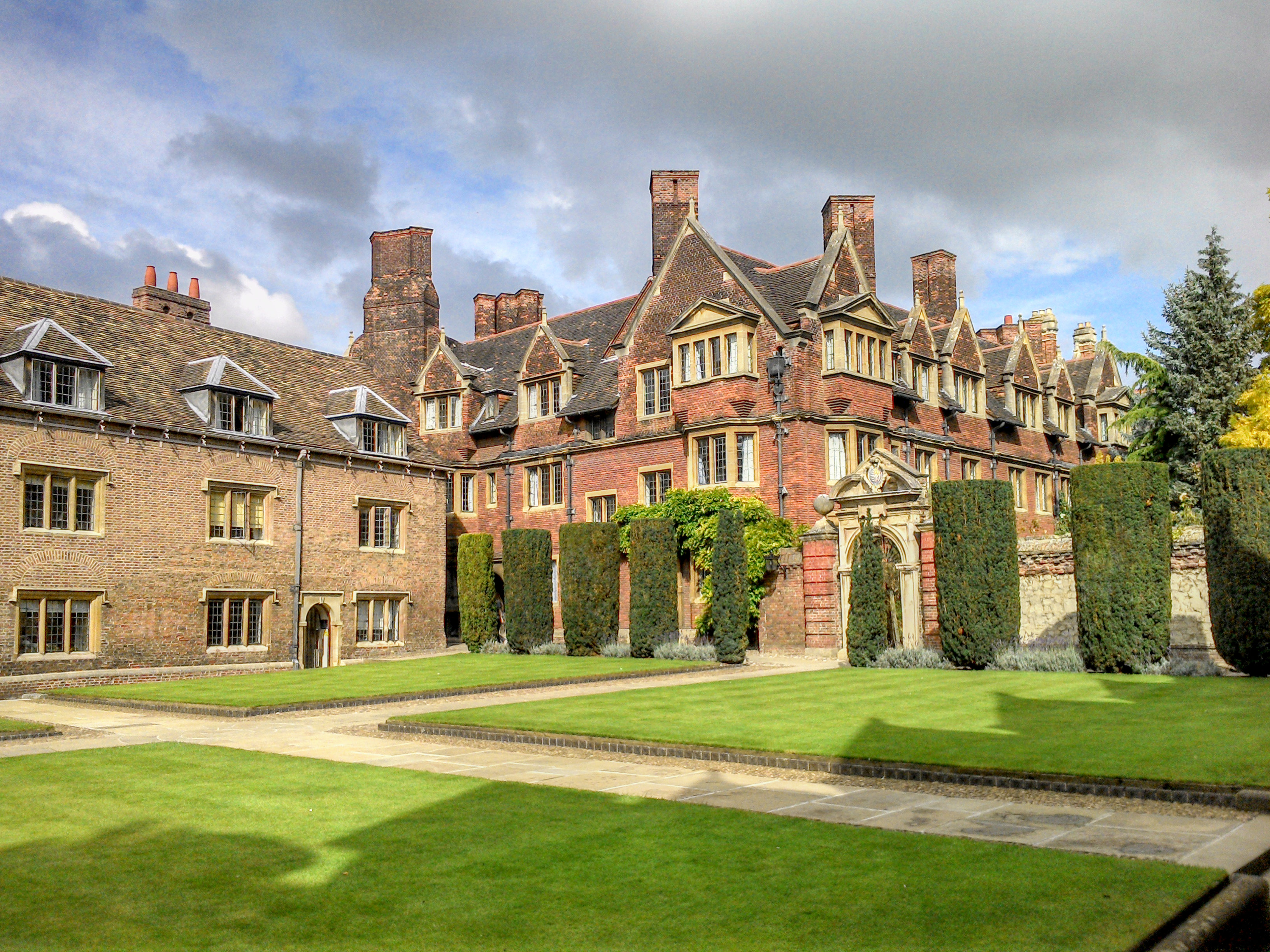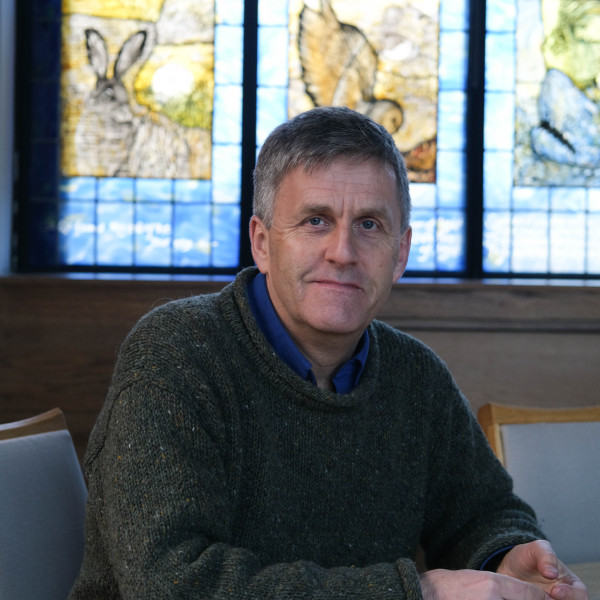May 2022 - Dr Mark Wormald
Dr Mark Wormald, one of our Corporate Fellows, offers some reflections on the relationship between poetry and conservation, and argues that finding meaning in the landscapes we often take for granted will help us build the “coalition of care”, among corporations, consumers and cultural leaders, which is needed to protect our natural world
In February 1939, the great poet W. H. Auden wrote a poem in memory of another, W. B. Yeats. Auden could take some things for granted: the humanity of the man he mourned, the Irish rain, and the nature of the art both men knew could only do so much, for all its quiet powers.
You were silly like us; your gift survived it all:
The parish of rich women, physical decay,
Yourself. Mad Ireland hurt you into poetry.
Now Ireland has her madness and her weather still,
For poetry makes nothing happen: it survives
In the valley of its making where executives
Would never want to tamper, flows on south
From ranches of isolation and the busy griefs,
Raw towns that we believe and die in; it survives,
A way of happening, a mouth.
Some weeks ago, I recalled these lines in a seminar I attended in the Cambridge Conservation Initiative (CCI), along with three cohorts of postgraduate students who had spent the year in Cambridge reading for Master’s courses in Holocene Studies, Anthropocene Studies and Conservation Leadership. These students are extraordinary. Each of them described a single image or object that represented what the natural world means for them, and why it matters. The images they chose all came from formative experiences in their homeland, and most from their youth: Vietnam, India, Ghana, a range of European countries, including Britain and Ireland, and the Americas. Every one of them spoke with passion, clarity, conviction, concern.
Most of these students will be using what they’ve learned in Cambridge to take up conservation roles back at home. If these are the leaders of their generation in the management and restoration of landscapes and ecosystems in crisis, then our fragile planet and future generations may just have a chance.
But they’ll also need luck, and know how to make, and manage, powerful friends.
Because Auden was wrong. Not about the endearing silliness of W. B. Yeats, or the enduring madness of a young nation struggling with the psychic legacy of centuries of subjection, but in two linked assumptions. Auden took for granted that poetry, like the archetypal river he compared it to, ‘flows on’, as it always has. The quietness and remoteness of its sources, the quiet connections it made between that timeless valley of its making and other landscapes of the heart and mind, between solitude and community, loneliness and loss, would always be as real as the society and public places it refreshed and resisted. Why? Because he could also take for granted that ‘executives / Would never want to tamper’ with them.
Though managed for millennia, something new and terrible has been inflicted on our rivers in the decades since Auden wrote. Executives – of water companies, manufacturers of agricultural fertilisers and pet flea treatments, residential property developers, and sewage treatment works – have been tampering with our rivers. So they must bear their share of the blame, along with the successive regulatory and enforcement regimes, Associations and Authorities and Agencies, successive governments, who have failed to stop them, and each of us as consumers, who waste and otherwise take for granted and so imperil a precious natural resource.
Twice the age of those students, I cheated, and brought three objects to that afternoon’s seminar. One was a collection of poems by a third twentieth-century great, Pembroke’s own Ted Hughes. He published River in 1983, but revised it in 1993, the year he co-founded the Westcountry Rivers Trust; among its new poems is the horrifying ‘1984 on the Tarka Trail’, about the pollution and decimation by water abstraction of his beloved river Torridge.
The second was a programme for a 2019 conference, ‘Owned by Everyone’, on the plight, poetry and science of the Atlantic salmon, inspired by Hughes’s example, and borrowing the words he put into the mouth of the usually speechless salmon smolt, which John Fanshawe of the CCI and I co-organised with the campaigning NGO Salmon & Trout Conservation.
And the third was Wild Fish, the glossy conference proceedings, its name too borrowed from Hughes, in a submission the Poet Laureate to a 1997 public inquiry into netting of salmon and sea-trout in the estuary on the North Devon coast at the mouths of the Torridge and the Taw. Look out, later this month, for it to make another splash, as Salmon & Trout Conservation relaunches, embarks on the latest and most inclusive phase of its work to date.
But it goes beyond branding. Poetry can make something happen. Poetry can touch us, reach beneath our surface, make us feel, as Ted Hughes knew we must, if we are to hear that salmon smolt or sense the fragile beauty of our mayflies. Most of us don’t, yet. But our rivers and the lives they contain really must be ‘owned by everyone’.
Of course, they’re not yet, by any means. Because poetry can’t do it alone. Our rivers and the lives they contain need the most powerful and responsible coalition of care that we can muster: and that coalition must involve corporations and consumers as well as our cultural leaders, the next generation as well as our own. Next March, a second Cambridge conference, this time on the wonder and vulnerability of our chalk streams, will reflect the scale of the challenge involved: it will ask ‘Owned by Everyone?’
Which brings me back to those rising conservationists. Wherever in the world they’re working, they will need help. They need willing, active partners in corporate leadership ready to use their ESG commitments to influence collective behaviour and persuade policy makers to stop tampering with our rivers and instead to trust them, to make the right long term decisions now.
Mark is Director of Studies in English at Pembroke College and a Member of the Faculty of English, University of Cambridge. He was Senior Tutor at Pembroke from 2000–2016 and was Secretary of the Senior Tutors’ Committee from 2016–2020, coordinating educational and welfare policy between the Colleges and the University; he is also a member of University Council and the General Board.
Dr Wormald’s research interests include 19th century, 20th and 21st century literature and poetry – specifically the work of Ted Hughes, literary friendship, the dialogue between text and image and environmental advocacy. He recently fundraised to bring to Pembroke a remarkable archive of literary letters, poems and artworks associated with Ted Hughes, Seamus Heaney and their close friend the painter Barrie Cooke. The Catch: Fishing for Ted Hughes was published by Bloomsbury in April 2022.

